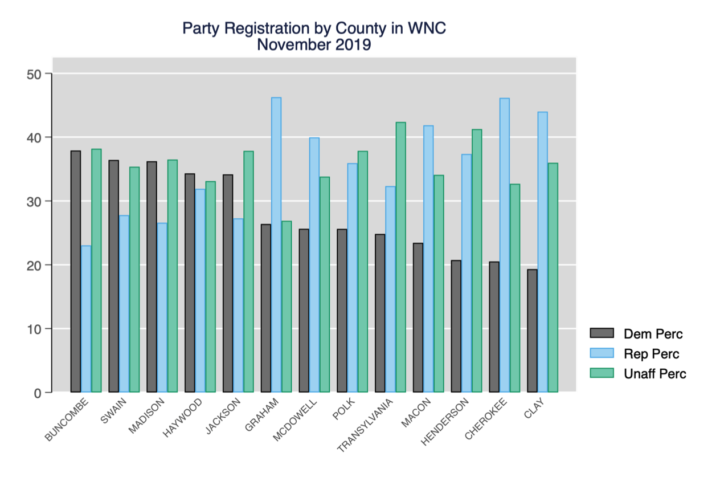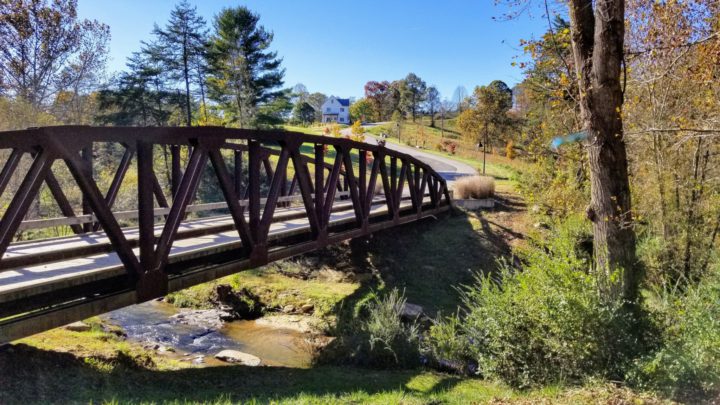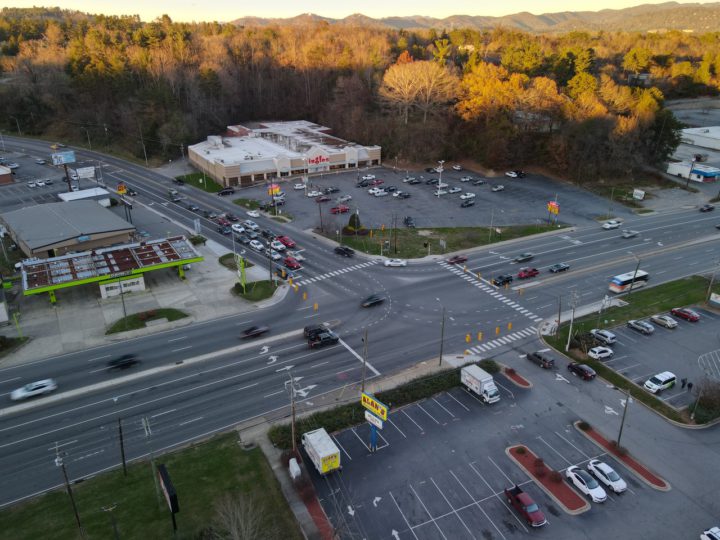In a year marked by a constant churn of updating numbers — COVID-19 dashboards, economic forecasts, political polls — I took comfort in the times I was able to report more deeply on some of the issues facing Western North Carolina. Each of my top five selections from 2020 is a longer read, but each tried to understand some of the structural challenges to the region’s politics, health and environment beneath the daily headlines.
Unaffiliated candidates face challenging path to ballot
Although unaffiliated voters are the second most-populous political group in North Carolina, no members of the state’s Congressional delegation are unaffiliated, nor are any officeholders at the state level. According to the N.C. Association of County Commissioners, just seven of 587 total county commission seats were won by independent or third-party candidates in 2018.
Local government advisory groups hindered during COVID-19
From March through July, the majority of local government boards and commissions meetings were canceled due to COVID-19, meaning citizens were largely shut out of formal policy discussions as Asheville City Council and the Buncombe County Board of Commissioners managed the tandem economic and public health crises caused by the coronavirus.
COVID-19 stresses Buncombe opioid response
“We’ve got an epidemic within a pandemic,” says Kevin Mahoney with the Mountain Area Health Education Center. Social distancing, job losses and drug contamination associated with COVID-19 have all complicated local efforts to manage the impacts of opioid use.
Climate migration could bring influx to WNC
“Folks are really starting to get weary of the pattern of hurricanes and extreme weather and are looking for more stable environments such as Western North Carolina,” says local real estate agent John Haynes, about clients seeking to move to the region from coastal states like Florida, New Jersey and Texas.
New commission to tackle county land use
Buncombe County Board of Commissioners Chair Brownie Newman lists land use policy as a top priority for the new commission, sworn in on Dec. 7. Board members will likely revisit the county’s land use plan, a document originally developed in 1998 and last updated in 2013, in response to rapid community growth.











Before you comment
The comments section is here to provide a platform for civil dialogue on the issues we face together as a local community. Xpress is committed to offering this platform for all voices, but when the tone of the discussion gets nasty or strays off topic, we believe many people choose not to participate. Xpress editors are determined to moderate comments to ensure a constructive interchange is maintained. All comments judged not to be in keeping with the spirit of civil discourse will be removed and repeat violators will be banned. See here for our terms of service. Thank you for being part of this effort to promote respectful discussion.